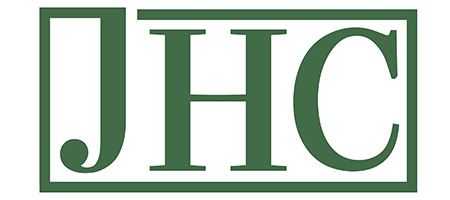Tax season can be a stressful time for many individuals and businesses alike. With the April 15th deadline looming, the pressure to gather documents, complete forms, and file taxes can feel overwhelming. For those who find themselves unable to meet the deadline, the option to file for an extension until October 15th can provide much-needed relief. However, like any financial decision, there are both positives and negatives to consider before opting for a tax extension. In this guide, we’ll explore the advantages and disadvantages of filing for a tax extension until October 15th, helping you make an informed decision that aligns with your financial situation and goals.

Pros of Filing for a Tax Extension:
More Time for Preparation: One of the primary benefits of filing for a tax extension is the additional time it provides for gathering necessary documents, organizing financial records, and ensuring accuracy in tax filings. This extended period can be particularly valuable for individuals with complex financial situations or businesses with intricate accounting needs.
Reduced Risk of Errors: Rushing to meet the April 15th deadline can increase the likelihood of making mistakes on tax returns, leading to potential penalties, audits, or delays in processing. By opting for an extension, taxpayers can take the necessary time to review their financial information thoroughly, seek professional advice if needed, and minimize the risk of errors on their tax filings.
Avoidance of Penalties: Failing to file taxes by the April 15th deadline can result in penalties and interest charges imposed by the Internal Revenue Service (IRS). By filing for an extension, taxpayers can avoid these penalties, provided they submit their tax returns by the extended deadline of October 15th. This can help alleviate financial strain and preserve resources that would otherwise be spent on penalties and fees.
Flexibility in Payment: While filing for an extension extends the deadline for submitting tax returns, it does not grant an extension for paying any taxes owed. However, taxpayers who anticipate owing taxes can use the additional time to budget and plan for payment, potentially avoiding late payment penalties or exploring payment options such as installment agreements with the IRS.
Opportunity for Tax Planning: For individuals and businesses seeking to optimize their tax strategies, filing for an extension can create opportunities for tax planning and optimization. By consulting with tax professionals or financial advisors during the extension period, taxpayers can identify potential deductions, credits, and strategies to minimize tax liabilities and maximize savings.
Cons of Filing for a Tax Extension:
Accrual of Interest: While filing for a tax extension may help avoid late filing penalties, it does not exempt taxpayers from accruing interest on any taxes owed beyond the April 15th deadline. This means that individuals who owe taxes will still be subject to interest charges on unpaid balances, potentially resulting in higher overall tax liabilities.
Delayed Refunds: Taxpayers expecting a refund from the IRS may face delays in receiving their funds if they opt for a tax extension. Unlike those who file by the April 15th deadline and typically receive refunds within a few weeks, individuals who file for an extension may need to wait until after October 15th to receive their refunds, leading to a longer wait time for financial reimbursement.
Extended Stress and Uncertainty: While filing for a tax extension can provide temporary relief from the pressure of the April 15th deadline, it may also prolong feelings of stress and uncertainty associated with unresolved tax obligations. Procrastination and avoidance behaviors can exacerbate anxiety levels and impact overall well-being, making it essential for individuals to address tax-related concerns promptly.
Potential for Missed Deadlines: Despite the extended deadline provided by a tax extension, some taxpayers may still find themselves unable to meet the October 15th cutoff date for filing taxes. This could occur due to unforeseen circumstances, procrastination, or lack of preparation, leading to further penalties, interest charges, and potential legal consequences.
Limited Time for Financial Planning: While filing for a tax extension can create opportunities for tax planning and optimization, it also compresses the timeframe available for implementing strategic financial decisions. Taxpayers who wait until the last minute to address tax-related matters may find themselves rushed or unable to fully leverage available opportunities for tax savings and optimization.
Call Jennings, Hawley & Co. Today
Filing for a tax extension until October 15th offers both advantages and disadvantages for individuals and businesses navigating the complexities of tax season. While the additional time for preparation, reduced risk of errors, and avoidance of penalties are significant benefits, taxpayers must also weigh the potential drawbacks, such as accruing interest, delayed refunds, and extended stress. Ultimately, the decision to file for a tax extension should be made thoughtfully, taking into account individual financial circumstances, deadlines, and objectives. By carefully considering the pros and cons outlined in this guide, taxpayers can make informed choices that support their financial well-being and compliance with tax obligations.
